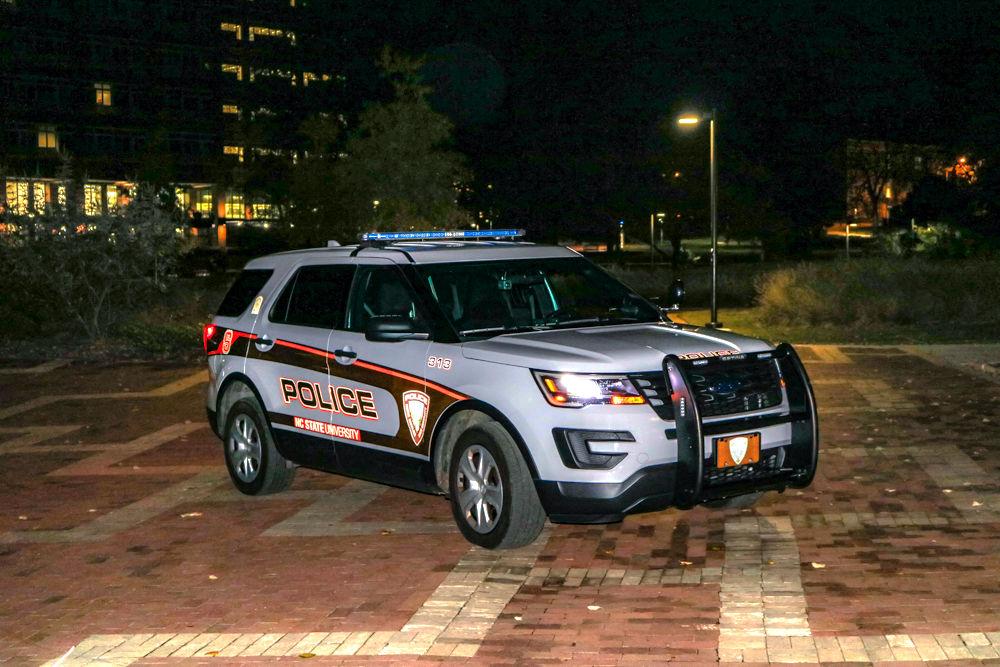NC State students have speculated that crime on campus has increased due to the high number of WolfAlert notifications the University has sent out during the fall 2020 semester. However, according to Chief of Police Daniel House, the crime rate on campus this semester is not any higher than usual, despite the increased number of WolfAlerts.
Alex Almaraz, a fourth-year studying materials science and engineering, said he noticed an increased amount of WolfAlerts this semester, especially with the seven COVID-19 cluster alerts.
“I think at one point I was receiving at least one a day, sometimes more, when everyone was still on campus,” Almaraz said. “Now that the majority of the residents in on-campus housing have moved out and classes are back online, I have received hardly any WolfAlerts.”
Almaraz said he believes COVID-19 cluster alerts contributed to the increased amount of WolfAlerts this semester and have drawn more attention to the WolfAlert system.
“I think people are more likely to read WolfAlerts now just in case there is a major COVID-19 update they need to know about,” Almaraz said. “This has probably led to people actually reading the crime notifications that have also been coming in, which could explain why some students feel the crime rates have increased this past semester.”
According to House, crime rates on campus are no different than any other semester. He said a short spree of bicycle theft during move-in week resulted in several WolfAlerts about larceny on campus.
“We started to have a bunch of bicycle larcenies, and we had some cars broken into also,” House said. “We found out who was doing it. It was a group of juveniles from off campus that were coming on campus, and we’re in the process of prosecuting those individuals.”
This spree of crimes and constant WolfAlerts did not go unnoticed by students, most of whom utilize the WolfAlert system. However, in Almaraz’s opinion, the campus crime rates have been consistent with previous semesters.
The most common crimes on campus include vehicle break-ins and larceny, according to House. The NC State University Police Department strongly encourages students to lock their bicycles with a U-bolt bicycle lock, which is harder to defeat than a chain lock, and to keep their cars locked.
“Take your valuables with you, lock them in the trunk if you have a trunk and, of course, lock your vehicle,” House said. “Most of our vehicle break-ins are crimes of opportunity, so people reach, pull the door handle, see if it opens, and if it does, they’ll steal things, and if it doesn’t, they will move on to the next car. The biggest part is just securing those items.”
Not all crimes that occur on campus are broadcasted to the student body via WolfAlert, House said. Only specific crimes dictated by the Clery Act are announced via WolfAlert. The Clery Act, passed in 1990, requires colleges and universities to inform students of specific crimes on and near campus in a timely matter.
“A lot of the time, it just depends on the information we get because, oftentimes, we get information that is incorrect, initially,” House said. “We then have to investigate some level of what type of crime it is, whether it is reportable or not reportable, but we usually err on the side of caution.”
Specific crimes that fall under the Clery Act include: murder, man slaughter, aggravated assault, arson, burglary, robbery, motor vehicle theft, rape, weapons possession, drug abuse violations, domestic violence and stalking.
House also said the amount of crime on campus has decreased since campus housing shut down.
“Criminals are looking for unlocked bikes, unlocked cars, and with very few people here, that opportunity so the crime rate does go down,” House said. “In fact, our last bicycle larceny was the 26th of August. That should give an idea of how it’s falling off, since we tended to have one everyday.”
Sign up to receive WolfAlert text notifications on the NC State website.








